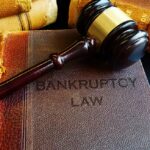Creditors Objection to Discharge
Creditors may file an objection to discharge of a particular debt based on fraud/false pretenses. The complaint must be filed within 60 days after the consumer bankruptcy case is filed. The filing of a complaint results in an adversary proceeding. If the debtor does not respond to the complaint, the court will grant a default judgment in favor of the creditor. The debtor may dispute the complaint by filing a response and asking the court to decide the issue after a trial. It is sometimes advisable that the debtor settle the complaint outside bankruptcy court.
Objections to Discharge are Rare
Out of over a thousand cases, creditors have filed complaints in just two of the cases represented by this office. In both cases, we advised the client that their creditor was more than likely to file a complaint. The clients in these cases were unable to delay filing because they needed to avoid foreclosure on a home. Both clients had over $100k in unsecured debt. The complaining lenders limited their review of the debtors accounts to the 6 months before the debtors’ cases were filed.
If a debtor has made large purchases on a credit card in the last six months, a creditor may object to the discharge (forgiveness) of these recent purchases. For example, let’s say a debtor has a credit card with a balance of $7500 and an available credit of $3500. The debtor has been carrying that $7500 balance for many months, then suddenly makes $3500 worth of purchases right before filing bankruptcy. The balance is now $10,000. Of that $10,000 balance, the creditor may object to the discharge of $3500. If the creditor’s complaint is granted, the debtor is responsible for paying back the $3500. The remaining $7500 is discharged. Large recent purchases may trigger a complaint against discharge. Also, the larger the balance a debtor has on a credit card, the more likely the lender will file a complaint.
Whether a lender will file a complaint depends on the facts and circumstances of each case.
Information the lender may examine includes but is not limited to the following:
- The amount of unsecured debt the debtor had at the time of filing
- The amount of unsecured debt the debtor had when the debtor began using the lender’s credit card.
- The debtor’s income at the time the purchases were being made
- The pattern of credit card usage, including whether there was a sudden increase in credit card purchases before filing.
- The type of purchases, including whether the debtor was using the credit card to live beyond his/her means.
- The nature of the purchases. Were the purchases for living expenses or were they in the nature of luxury goods and/or services.? For example, a $100 television probably is not considered a luxury good. A $1000.00 T.V. is probably considered a luxury good. How long before the case was filed were the luxury goods purchased? If within 90 days, a presumption of abuse arises. If beyond 90 days, there is no presumption, however, the lender may still establish abuse.
- The pattern of repayment. Did the debtor make minimal payments after making significant purchases?
- Did the debtor use the credit card to pay off non-dischargeable debts before filing bankruptcy? – (i.e. student loans, tax debts, alimony etc.)
- Did the debtor lie on their credit card application? Example, did the debtor over-state their income in order to realize a higher credit card limit.

